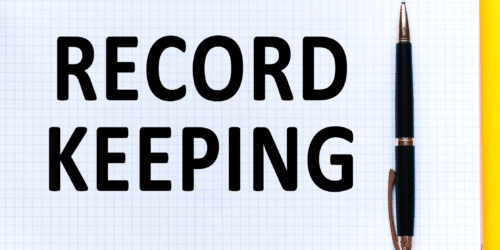A not-for-profit corporation incorporated pursuant to the Canada Not-for-Profit Corporations Act (the “CNCA”) is required to maintain certain records, including records as to its members, directors and officers.
These records are internal records and are not available to the public or filed with Corporations Canada; however, they are available to directors of the corporation – and in some circumstances to members and debt obligation holders. Where a person is entitled to access to these records, they are also entitled to take or receive excerpts from those records, although the CNCA does contain restrictions on how those records can be used.
These records must be kept at the corporation’s registered office or another location in Canada determined by the board of directors. The corporation is entitled to charge a reasonable fee for copies of certain records, whereas others must be provided free of charge.
Firstly, a not-for-profit corporation is required to keep copies of its key governance documents – its Articles, By-Laws and unanimous members agreement (if any) – including any amendments to those documents. Directors are permitted to access these documents and members are entitled to receive one copy of these documents without charge.
The CNCA also requires a not-for-profit to keep minutes of its meetings and decisions; specifically – minutes of the meetings of the directors, the members and any committee of the directors or members and any resolutions passed by any of the foregoing. Minutes of board meetings and the resolutions of the directors are solely available to the directors; however, the minutes of meetings of the members and member resolutions are to be made available to directors, members and certain creditors.
In addition, a not-for-profit corporation must keep registers of its directors, officers, members and debt obligation holders – all of which must contain the information required by the regulations, including names, addresses, email addresses where applicable and, in respect of directors, officers and members the dates in which the individuals held those roles. These registers must be updated on an ongoing basis so they remain current, but they are also required to show the history of the corporation – so former directors, officers and members must also be listed, including the date they ceased to have that role. The registers of the directors and officers are available to the directors, members and creditors. The register/list of members is considered more sensitive, so it is available to the directors, but not to members and creditors unless they provide a statutory declaration requesting the register and agree only to use it for the specific purposes set out in the CNCA.
A corporation is also required to maintain financial records in accordance with the CNCA and the requirements of the Canada Revenue Agency.
It is important to note that these are not optional requirements – a not-for-profit is required to maintain records in accordance with the CNCA.
If your not-for-profit is not compliant with these requirements, it is important that you take the steps to meet the requirements of the CNCA
This blog post was written by Megan Wallace, Practice Lead, Not-for-Profit and Charity Law, and a member of our Business Law team. She can be reached at 613-369-0368 or at megan.wallace@mannlawyers.com.








